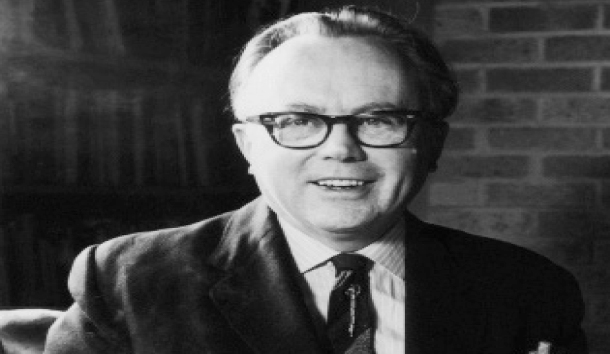I was born and reared in a small Michigan town known as the home of both Gen. George Armstrong Custer and the La-Z-Boy chair company, an accident of local history most people in town do not find strange. The juxtaposition of the annihilation of Custer’s forces at the Battle of Little Big Horn with the comfort of a recliner does not occur to people. After all, the best way to watch a good old Western shoot-’em-up is in a La-Z-Boy.
These thoughts, among others, occurred to me as I left my hometown for even flatter pastures in Ohio where generations of my family lived. I wondered about the role of place in my life and in the lives of others.
I had a sense of coming home even though I was leaving the only one I had ever known. Perplexed, I recalled a passage from Nathaniel Hawthorne’s The Scarlet Letter that struck me the first time I read it in Professor Dillon’s English class in community college. Hawthorne wrote in The Custom-House, his introduction to the novel, about returning to his hometown of Salem, Massachusetts:
This old town of Salem—my native place, though I have dwelt much away from it, both in boyhood and maturer years—possesses, or did possess, a hold on my affections, the force of which I have never realized during my seasons of actual residence here.
Hawthorne speaks to a universal truth sensed by anyone who has left his native place for a time, only to return in the later seasons of his life with perhaps diminished eyesight but a clearer vision. Such is wisdom. But Hawthorne speaks also to a truth with particular significance for conservatives. Russell Kirk, in the “New England Sketches” of The Conservative Mind, taught that
Conservatism cannot exist anywhere without reverence for dead generations. The incessant movement and alteration of life in America, the absence of true family continuity, even the perishable fabric of American building, unite in tempting the United States to ignore the past.
Kirk, most content planting trees in his ancestral Mecosta, said of Hawthorne that he “was the best of those writers who leavened the American temper with a respect for the old things.”
Hawthorne wrote that the hold on his affections
is probably assignable to the deep and aged roots which my family has struck into the soil. It is now nearly two centuries and a quarter since the original Briton, the earliest emigrant of my name, made his appearance in the wild and forest-bordered settlement, which has since become a city. And here his descendants have been born and died, and have mingled their earthy substance with the soil; until no small portion of it must necessarily be akin to the mortal frame wherewith, for a little while, I walk the streets. In part, therefore, the attachment which I speak of is the mere sensuous sympathy of dust for dust.
This is no idle wandering by a local son. It is a spiritual identification with the physical texture of one’s ancestors. It is also profoundly conservative. The dead are in the very air we breathe and on the land we walk—the earth and air that sustain us. This is not to say that life cannot be found in new places. It is to say that loyalty to a place, to its lessons and love, must not be disregarded such that it remains for us only a geographic memory and not the living expression of ancestral duty and devotion.
But what of those who, like me, leave the place of their birth and rearing and go to place of deeper roots? Kirk, not surprisingly, offers instruction. Born in Plymouth, Michigan, Kirk made his way north to Mecosta, where his roots perhaps ran deepest. At Piety Hill he established the permanent things in his life and became an example for the rest of us. Writing in Confessions of a Bohemian Tory: Episodes and Reflections of a Vagrant Career, Kirk expanded John Henry Newman’s Toryism of loyalty to persons to include loyalty to places. The well-traveled Kirk could no more than imagine himself established in some distant, Gothic place. In the view of a restless wanderer and rooted wonderer, Kirk believed that “no matter how far a man strays, it is well that his home should remain a place where his ancestors lie buried.”
Given that my ancestors lie buried in several places (like most families, I imagine), options abound. But it is not just the place of burial that Kirk is emphasizing and Hawthorne is describing. It is the soul of a place as much as it is the burial ground of a body. It is the thing we carry in our minds and hearts whenever we leave or return to an ancestral place. A place is animated by the life lived in between recorded events. It is in the love with which the soil was tilled, in the dedication with which the houses and structures were built, and in the devotion of mothers and fathers who raised their children to become citizens of the republic.
And so I find myself in Ohio, where generations of my family lived, loved, worked, and died, making their small mark on the land, some no doubt only by their burial marker. We are not a distinguished family (though we do boast of one of our ancestors being elected mayor of Waldo). But those past generations imbued the place with the spirit that persists in the collective virtues of Midwestern living.
There is consolation for all, whether distinguished or forgotten, in the perennial presence of a place in minds and memory, but more importantly, in reality. Hilaire Belloc captures a fine glimpse of it in verse:
He does not die that can bequeath
Some influence to the land he knows,
Or dares, persistent, interwreath
Love permanent with the wild hedgerows;
He does not die but still remains
Substantiate with his darling plains.

Leave a Reply